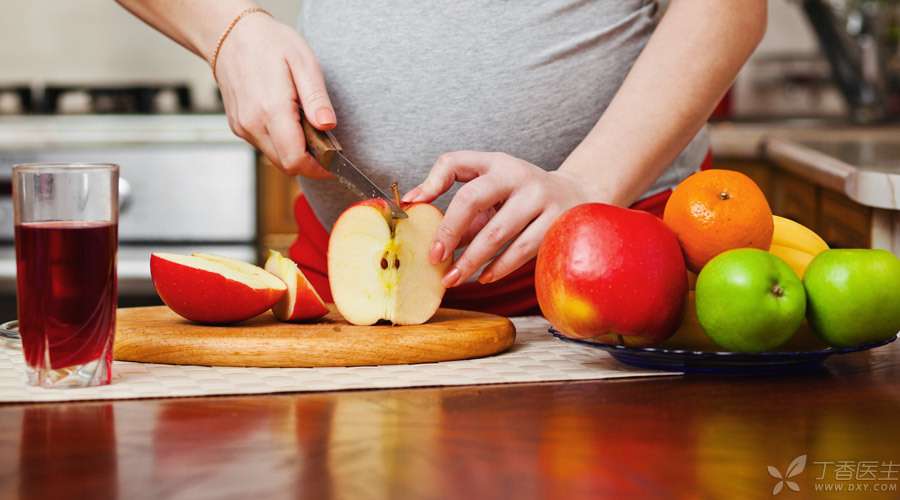
Editor’s Note: This content comes from the round table activity of “Methodology for Raising Two Children” jointly organized by Dr. Clove and Zhihu. Click to view the details of the activity.
Having a pregnant mother in the family is a big event in the family. The whole family is in a hurry around the pregnant mother and is careful everywhere.
However, do you really understand scientific dietary taboos during pregnancy?
Is it all is forgiven or trembling?
During pregnancy, it is necessary for pregnant mothers to avoid some food.
Why should diet during pregnancy be taboo?
One is to protect the health and safety of pregnant women themselves, because the immunity of pregnant women is worse than usual, and they have no resistance to external invaders such as viruses and germs, and are more likely to get sick. Moreover, once pregnant women get sick, they will be more deeply hurt by germs and viruses and will suffer more.
The second is to protect the normal development of the fetus and reduce the possibility of birth defects, low fetal weight, abortion, premature delivery, stillbirth, feeding problems after birth, behavioral problems after growth, learning difficulties and other problems.
In a word, during pregnancy, pregnant women should avoid food that may bring harm to themselves and their babies.
Don’t eat these foods
Food that may be contaminated by bacteria and parasites:
- Raw and undercooked chicken, duck, fish, meat and seafood. Do not eat undercooked steak, sashimi, oysters, drunk shrimp and drunk crab. Special attention should be paid to ensure that the meat is well cooked when rinsing meat in hot pot. There are no well-cooked eggs and egg products. Apart from the usual eggs, Other foods that may contain raw eggs include: Tiramisu, mayonnaise, all kinds of salad dressings, cream sauce, eggnog, semi-finished dough for baking, etc. Processed meat products that are not cooked. Including all kinds of sausage, bacon, smoked fish, ham, hot dogs, minced meat sauce. Milk and dairy products that have not been pasteurized. Milk sold in supermarkets is pasteurized or thermally sterilized. As long as it is properly stored, It is safe to eat. What is easily overlooked is the soft cheese sold in imported supermarkets. Some countries produce soft cheese from raw milk that has not been pasteurized, Before purchasing, make sure whether the milk/goat’s milk on the ingredient list has been pasteurized. Vegetable and fruit juice that has not been pasteurized. Fresh squeezed vegetable and fruit juice is very popular now. However, due to its rich nutrients, it is very suitable for the growth of various germs. If it is not pasteurized and stored below 4 ℃, it may contain various germs. Raw vegetables that have not been washed clean.
Foods with high heavy metal content:
- Marine fish with high mercury content. The Food and Drug Administration, FDA) explicitly listed 4 kinds of marine fish with high mercury content that pregnant women fast, Swordfish, king mackerel, square head fish/horse head fish, shark. Other marine fish with high mercury content include tuna/tuna, golden lion fish and marlin fish. Lead-containing foods, such as converter popcorn and preserved eggs (also called preserved eggs, changed eggs). It should be noted that [preserved eggs without lead] on the market also contain a certain amount of lead, and pregnant women should eat less or no lead.
Alcohol and alcoholic beverages: Pregnant women should not drink alcohol, including all kinds of fruit wine and wine (also called sweet wine).
Eat less of these foods
Caffeinated beverages and foods, such as coffee, tea, certain functional drinks and chocolate. The American Academy of Obstetrics and Gynecology pointed out that although pregnant women do not need to completely avoid caffeine, everyone’s reaction to caffeine is different, and if mothers feel that caffeine makes them or their babies uncomfortable, they should avoid it.
If you really want to drink coffee during pregnancy, how much is safe? Click: Pregnancy and Birth: Drinking Coffee during Pregnancy
Fried foods and processed foods with high fat and calories, such as various oily biscuits, cookies, cakes, fried chicken, French fries, potato chips, etc. Excessive fat and calories may lead to overweight fetus, bring risks to the production process, bring hidden dangers to children’s long-term health, and bring risks of obesity and gestational diabetes to mothers.
Foods and beverages with high sugar content, such as cola, sweet tea and dessert. These foods have low nutrient content and high calorie content, which is easy to cause obesity, thus increasing the risk of gestational diabetes mellitus for pregnant mothers.
Animal liver. The liver is rich in iron, Many pregnant women eat the liver to supplement iron. However, the vitamin A content in the liver is also very high. Excessive intake of vitamin A by pregnant women may increase the risk of fetal malformation. Therefore, even if the liver is used to supplement iron, pregnant women cannot eat more, 15-20 g per day is enough. The safer way to supplement vitamin A is to choose plant foods such as carrots and spinach.
